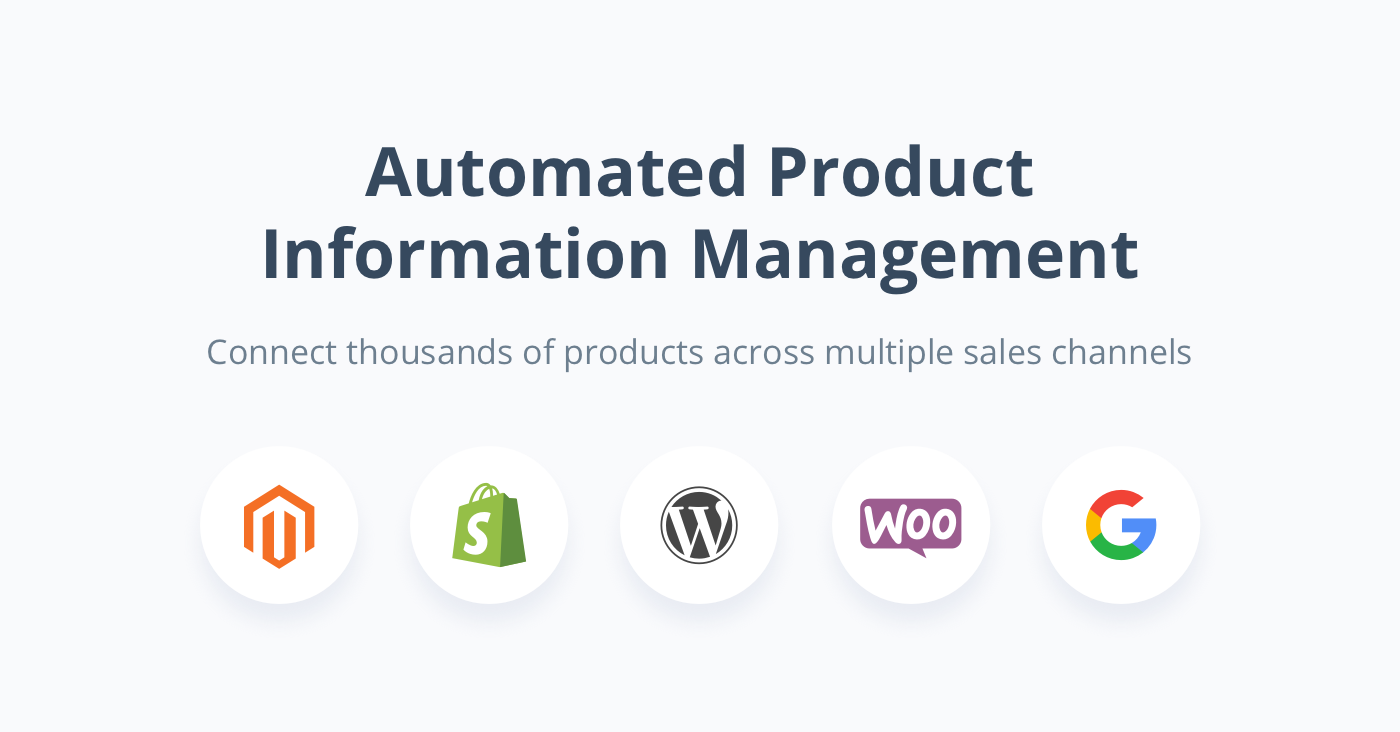
The fact that e-commerce is booming does not come as a surprise. It is the advantages that it provides and the benefits that it offers, both for consumers and for sellers, that has turned it into a new and successful business model.
For this reason, it is increasingly necessary to be competitive in an environment that is always growing and innovating with new techniques and digital tools, e-commerce strategies and trends.
If you want to know everything there is to know on how to develop an excellent e-commerce site, you are at the right place! Prepare to read a complete guide with the with the best e-commerce advice that you should follow.
Index
- What is an e-commerce site?
- Types of e-commerce sites
- E-commerce platforms
- E-commerce trends
- E-commerce strategies
- E-commerce integration
What is an e-commerce site?
An e-commerce site is a store that operates online via the Internet. Continuous advances in user experience and security (which we will discuss further down) have made the proliferation of this type of business unstoppable.
Advantages of having an e-commerce site
Having an online business is nowadays one of the best options when selling products. This is because of the great advantages offered by e-commerce:
→ Don’t miss this: How to sell more in your e-commerce site this year
1. It does not require a significant investment
One of the main advantages of an online business is that you don’t need to have a physical location, thereby eliminating all expenses related to rent, electricity, water service and furniture, among many others.
In order to have an e-commerce site, all you need to do is purchase an Internet domain and hosting services, whose low costs will hardly imply a significant initial investment, as it would for physical companies or establishments.
2. Sales are highly scalable
Purchases in online stores are characterized by being highly dynamic.
The fact of being able to offer an entire range of products in an e-commerce site makes it extremely simple to generate more sales based on a product, which is known as cross-selling, in addition to concurrent sales.
3. Extra flexibility
Without a doubt, one of the major advantages of online businesses. Having an e-commerce site lets you work from anywhere, avoiding the typical, daily traffic jams when commuting to and from work, for example.
And not only that – that flexibility goes even further, even allowing you to organize your time as you see fit, without being tied to a place or schedule.
4. Autonomy squared
And specifically related to that multiplication of flexibility, your autonomy also benefits from e-commerce thanks to the freedom to choose designs, audiences and messages, among others.
→ Find out more: 12 reasons why your clients abandon their shopping cart
Disadvantages of having an e-commerce site
However, for the time being, we couldn’t consider the world of e-commerce as an “ideal world,” since it is not all roses. Advances and innovations provide us with a number of benefits when it comes to our professional development, but there are also a few downsides.
You need to be aware of them to know how to face them, and maybe even turn them into new opportunities using your skills and ingenuity.
1. Significant competition
The fact that e-commerce is the opportunity of present and future is no secret, which is why many others have already engaged in this type of commerce.
But don’t worry; having a lot of competition does not mean you will fail – quite the opposite. If there is competition it is because the model is on high demand, which is something you need to exploit! Discover this free guide on how to increase the sales conversion rate of your site.
This said you need to identify yourself with your own identity, define what your added value is, and be very clear on what is different about what you offer.
2. You need to have stock
E-commerce requires a stock of products to face demand. And given that it is hard to know which ones work the best at the beginning, this is usually an obstacle.
However, do not despair. We give you a few e-commerce tips that can be a lot of help, such as:
-
Showcase products from another brand on your website in exchange for a commission for each sale.
-
Sell only products on demand.
3. Getting your product to the customer: deliveries
Now comes a subject that is a bit sensitive: logistics. Another drawback of e-commerce.
The rise of online businesses has encouraged the creation of many logistics companies. This being the case, it is important to know them and get good advice in order to choose the one that best suits your needs, with the purpose of ensuring the best service in each of your deliveries.
Types of e-commerce
There are several types of e-commerce ways to sell online, both if you want to do it via your own e-commerce site, and if you want to showcase your products on a marketplace.
1. B2B (Business to Business)
These are companies that sell products to other companies. They usually sell parts, services or raw materials.
2. B2C (Business to Consumer)
These companies sell products to the end consumer and represent most of the electronic businesses.
3. C2B (Consumer to Business)
In this case, it is the consumer who offers its services to a company, such as freelancers, for example.
4. C2C (Consumer to consumer)
The free market is the stage for these types of business transactions between consumers.
E-commerce platforms
Some of the top e-commerce platforms nowadays to create and host online stores are:
- WooCommerce
- PrestaShop
- OpenCart
- AbanteCart
- CubeCart
- Open Real Estate
E-commerce trends
As we have already discussed, the e-commerce market is dynamic and ever-changing. Which is why it is important to always be up-to-date when it comes to new trends for near the future, so that they don’t catch us off-guard.
1. Responsive design
Adapting a virtual store to mobile screens is necessary for a time in which the use of these devices has grown exponentially. This is known as responsive design and is paramount for the user experience.
2. Payment novelties
Facilitating purchases is becoming an increasing trend, and this is the reason why new forms of payment in which the consumer does not require a credit card, and can make purchases using their fingerprint, for example, are becoming the norm.
3. Customer loyalty techniques
Rewarding your clients each time they make a purchase is a great way to earn their loyalty. This helps keep you on their minds (the Top of Mind phenomenon) because you know that in this way, it is highly probable that the client will once again purchase your products whenever he/she needs them. And this, in such a consumerist society where brand loyalty no longer exists as it did a few years ago, is a true challenge.
4. Chatbots
Chatbots are conversation interfaces that sometimes act as smart customer service representatives through the use of keywords – a way to address your customers’ frequently asked questions.
E-commerce strategies
Some of the e-commerce strategies that will let you mostly increase your sales, but also your reputation, are the following:
Design an intuitive menu to facilitate the navigation of your e-commerce site. Also include sponsored posts via digital influencers, because recommendations on the Internet are highly effective.
Another essential in your strategy is the creation of attractive texts, or claims, that catch the eye of your target audience.
Next, don’t forget to include reviews by satisfied customers in your strategy, because as we’ve mentioned, they are highly effective and build a lot of trust. It is a decisive aspect of a purchase!
And to reach your audience, remember to share everything you do in your e-commerce site through social networks, since they are important channels that will let you reach all of your audience, in addition to contributing toward your brand awareness.
E-commerce integration
It is vital for you to integrate your ERP with the e-commerce platform so that all kinds of information generated by your business flows out of this integration – anything from knowing your product availability at all times to pricing and many other aspects
When starting an e-commerce site, it is paramount to integrate the information not only so that it is available, but also for it to be updated automatically, thereby optimizing sales and also the development of your e-commerce site.
The goal is none other than having all of the information available in real-time, and for it to be reflected on all of the systems that are involved in your business process in order to facilitate its development. Do you know that an ERP is not the most powerful tool you could have? In this regard, it is worth mentioning the great work that product information management systems (better known as PIMs) are doing in online businesses when it comes to guaranteeing a coherent and consistent content for each and every product.
→ Discover more: Differences between PIM, ERP & CRM
Now that you know everything you need to know about e-commerce, creating or optimizing your own will no longer be such as complicated task if you follow the tips, tools and strategies mentioned above. Get to it!






.png?width=520&name=Blog%20Partner%20(3).png)

.png?width=520&name=Blog%20Partner%20(1).png)
